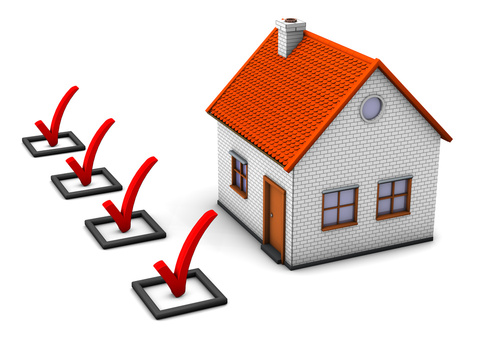Buying a Home? Plan for These Hidden Costs
Read latest blogs and articles from Housystan

The Information mentioned here was last updated on:
29/1/2026Buying a Home? Plan for These Hidden Costs
Purchasing a home is a monumental financial step that involves many obvious costs, such as the price of the property itself. However, nestled within the excitement of buying your dream home are several hidden expenses that can catch first-time buyers by surprise. Understanding these costs can help you budget accurately and avoid unpleasant financial strains down the line.
The Down Payment and Beyond
- Verified Tenants/Buyers
- Unlimited Property Listing
- Zero subscription/charges fee
1. Down Payment
The down payment is often the most significant upfront cost. Most lenders require a down payment ranging from 3% to 20% of the home’s purchase price. However, being prepared for additional costs beyond the down payment is crucial.
2. Private Mortgage Insurance (PMI)
If your down payment is less than 20%, lenders usually require you to purchase private mortgage insurance. PMI protects the lender if you default on your loan. This cost is typically added to your monthly mortgage payment.
3. Homeowners Insurance
Not only is homeowners insurance required by most lenders, but it also safeguards your investment from various risks like fire, theft, or natural disasters. Be sure to shop around for the best rates, as premiums can vary widely based on the home’s location and your personal insurance history.
Closing Costs
Closing costs can catch many buyers off guard. They generally range from 2% to 5% of the loan amount and cover several fees associated with finalizing your mortgage.
- Loan Origination Fees: Lenders charge this fee for processing your loan application. It typically amounts to about 1% of the loan total.
- Appraisal Fees: Lenders require a professional appraisal to ensure that they aren't lending you more money than the home is worth, with typical fees ranging from $300 to $500.
- Title Insurance and Search Fees: Title insurance protects against any legal disputes over the home's ownership. The costs cover searches to ensure the title is clear of any liens or claims.
- Attorney Fees: In some states, legal representation is required during closing. These fees can vary widely depending on the complexity of the transaction.
- Escrow Fees: An escrow account is often set up to hold funds related to your mortgage, such as insurance and tax payments. The fee for setting this up can be a few hundred dollars.
Maintenance and Repairs
Moving into your new home isn't the end of your financial planning. Homes come with ongoing maintenance and potential repairs that are your responsibility.
- Regular Maintenance: Routine upkeep such as lawn care, gutter cleaning, and HVAC servicing can add up over time. Budget for annual costs that often fall within 1% to 4% of the home’s value.
- Unexpected Repairs: Whether it's a leaky roof or a failed appliance, unexpected repairs are an inevitable part of homeownership. An emergency fund specifically for home repairs is wise, providing peace of mind when issues arise.
Property Taxes
Property taxes are an ongoing cost usually based on the home's assessed value and local tax rates. They can vary dramatically between jurisdictions. Understanding the tax rate in your area and checking for potential property tax increases is essential before buying a property.
Homeowners Association (HOA) Fees
If your home is part of a homeowners association, expect monthly or annual dues. These fees cover shared community amenities, maintenance in shared spaces, and sometimes even lawn and exterior upkeep. Be sure to factor in these fees when budgeting, as they can affect your affordability.
Utility Costs
Estimating utility costs before purchasing is crucial to avoid surprises once you move in. Larger homes or homes with older systems (like HVACs) can be energy-intensive. Investigate the average costs for electricity, water, gas, and other utilities in the area you plan to move to.
Moving Costs
Moving into your new home involves either hiring movers or renting a truck, both of which come with costs. In addition to transportation, you may need packing materials or temporary storage, especially if your move involves a transition period between residences.
Pest Inspections and Control
While pest inspections may be included in closing costs, many buyers opt for additional services to address or prevent ongoing issues. Houses in particular regions may be more prone to issues with termites or other pests, necessitating regular treatment.
Renovation and Personalization
Although not always 'hidden,' the costs associated with making a home your own can be overlooked when budgeting.
- Initial Renovations: Whether it’s updating a kitchen or adding a fresh coat of paint, many new homeowners opt to make changes upon moving in.
- Furnishing and Decorating: New furniture and decor can be costly, especially if you're moving from a smaller space into a larger home.
Warranties
Some buyers choose to purchase a home warranty, especially if the property's systems and appliances are older and not covered by a manufacturer's warranty. These plans can help mitigate costs if something breaks, but they come with their own annual premium and service fee structures.
Conclusion
Navigating the hidden costs of buying a home can be daunting, but understanding them upfront is your best asset. By accounting for these expenses as you plan your purchase, you can better manage your finances and settle into your new home with fewer surprises. While the list of expenses might seem long, being prepared means you can focus on enjoying this significant milestone. For more tips on managing your finances when buying a home, check out our comprehensive guide on budgeting for first-time homebuyers. Keep in mind that preparation and knowledge are key to a smooth home-buying experience.